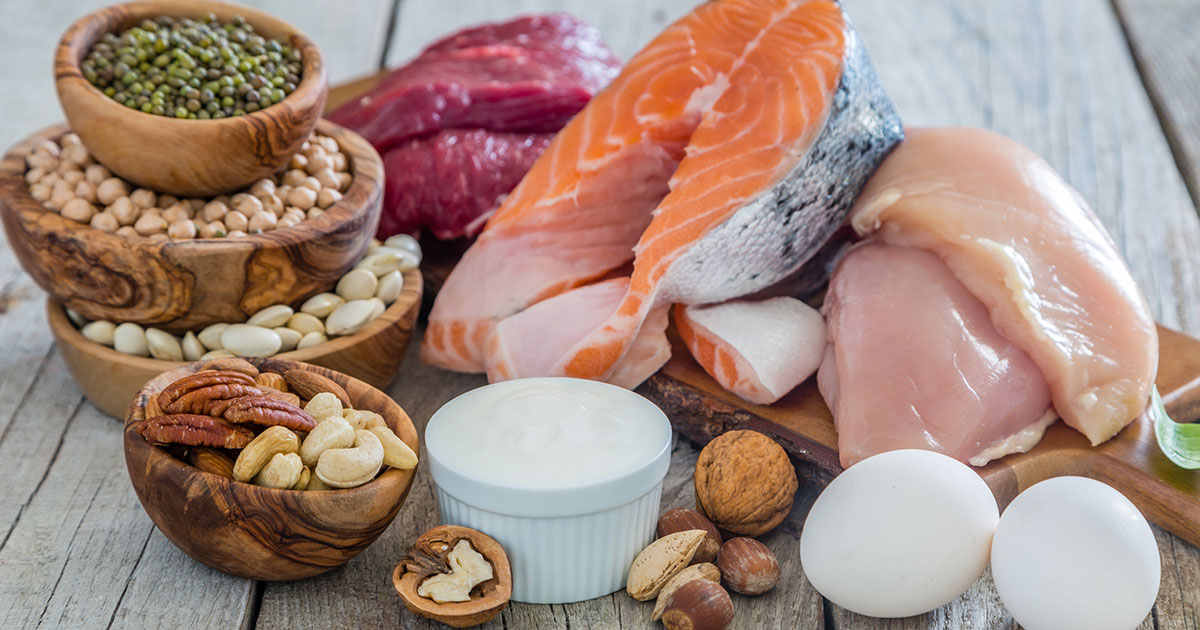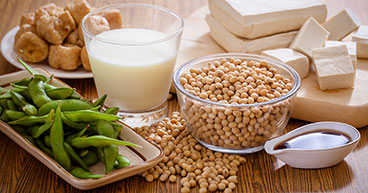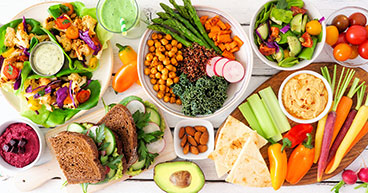
Over the past few decades, Americans have jumped aboard the high-protein diet craze in droves. And why shouldn’t they? For years, it seemed new evidence was emerging nearly every day linking protein-rich diets to more lean muscle mass and greater weight loss, especially over the short term.
The Atkins Diet. The Zone. Keto. Paleo. South Beach. These high-protein, low-carbohydrate diets generally recommend upping the total number of calories you get each day from protein while significantly reducing what you get from carbohydrates. The goal? Forcing your body to burn fat for energy.
Still, some experts have raised concerns about the potential harms of these diets. For instance, eating high-fat foods that are protein-rich can lead to high cholesterol and a greater risk for heart disease. This type of diet can also stress your kidneys. And then there’s the link some studies have found between animal sources of protein, especially red meat, and cancer development.
While the research around how much is too much is still a bit murky, there’s one fact everyone seems to agree on: The source matters when it comes to protein and health—and that includes its connection to cancer.
In this article, we’ll explore:
- What are the advantages of high-protein diets?
- High protein diets and cancer: What does the research say?
- How much protein is safe?
If you’ve been diagnosed with cancer and are interested in a second opinion on your diagnosis and treatment plan, call us or chat online with a member of our team.
What are the advantages of high-protein diets?
Protein is a vital nutrient. Along with carbohydrates and fat, protein is one of the three major macronutrients, meaning your body needs it in greater quantities than other nutrients.
Made up of hundreds of thousands of amino acids—the building blocks for life—protein helps the body perform critical functions, such as powering chemical reactions, regulating the immune system and metabolic processes and building and repairing tissues.
While your body makes some of the amino acids used to create protein, you get nine essential amino acids from food, which means you must get these from your diet.
The lure of protein-heavy diets is their potential as a weight-loss tool. High-protein diets are linked to a reduced appetite and a revved-up metabolism. They’ve also proven helpful at preserving lean body mass during weight loss.
The problem seems to arise when you get too much of your protein from animal sources. Many animal-based protein sources, including red meat, eggs and dairy products, also contain high levels of saturated fats and cholesterol. That’s why it’s critical to choose the source of your protein carefully.
“All proteins are not created equal,” says Stephen Lynch, MD, Primary Care and Intake Physician and Vice Chief of Staff at City of Hope® Cancer Center Phoenix.
What are good protein sources outside of red meat?
According to the U.S. Department of Agriculture (USDA), most people meet or exceed protein recommendations for meat, poultry and eggs, but not enough get their protein from seafood and plant-based sources, such as nuts, seeds and soy products.
“Red meat is just one piece of the puzzle,” says Lora Reeves, MS, RD, LD, Clinical Oncology Dietitian, City of Hope® Cancer Center Atlanta. “We want a large part of the protein in our diets to be from plants.”
Reeves adds that plant-based proteins tend to have other types of helpful nutrients in them, as well, including fiber, which is associated with a reduced risk of health conditions such as high cholesterol, high blood pressure, heart disease and stroke.
Reeves advises incorporating more of these lean proteins into your diet:
- Beans
- Lean meats, such as skinless, white-meat poultry and fish
- Lentils
- Unsalted nuts
- Peas
- Seeds
- Soy products, including edamame and tofu
Smoothies with plant-based protein powders, including brown rice and pumpkin seed, are also good options if you have cancer and have trouble eating solid foods, Reeves says.
High-protein diets and cancer: What does the research say?
A “good bit of data” suggests an association between eating a lot of high-fat red meat as a source of protein and increased risk for developing cancer, Dr. Lynch says. One study, for example, found that people between the ages of 50 and 65 who ate a high-protein diet were four times more likely to die of cancer than people who didn’t eat as much protein. High intake of animal proteins also was associated with increased mortality.
According to the American Institute for Cancer Research (AICR), eating more than 12 to 18 ounces of red meat per week (or 4 to 6 ounces a day) may increase the risk for developing colorectal cancer. Regularly eating processed meats, such as ham, hot dogs, deli meats and bacon, may also increase your cancer risk. So may cooking red meat at high temperatures.
“I personally don’t believe that protein is inherently bad,” Dr. Lynch says. “But I would encourage people to be seeking the healthiest choices of protein.”
It’s also important to note that not getting enough protein in your diet has been linked to decreased muscle mass, functionality and wound healing in cancer patients, as well as worse outcomes, Reeves says. “So, it is imperative that our patients are meeting their protein goals.”
How much protein is safe?
How much protein is safe for you depends on several factors, Reeves says, including how old you are, your body composition, your overall health and—if you have cancer—your specific diagnosis and treatment goals.
The U.S. Food and Drug Administration (FDA) advises most adults to aim for roughly 50 grams of protein per day. That’s based on a 2,000 calorie-a-day diet. Yet most adults eat roughly twice the recommended amount.
Remember that there’s only so much protein the body needs, though, Reeves stresses. And, if you eat more protein than is necessary in a day, you may be robbing yourself of other nutrients the body needs, which you can get from eating a balanced diet of fruits and vegetables, whole grains and lean meat sources.
Plus, making small shifts in your diet can have major impacts on your health—including a reduced risk of cancer and heart disease.
Replacing some of your red-meat protein sources with seafood, for example, may help protect your heart. The American Heart Association (AHA) recommends two to three servings of fish per week because it’s rich in omega-3 fatty acids, which may help protect against cardiovascular disease.
Also, a recent study found that eating too much of one amino acid, called leucine, may increase your risk for developing heart disease.
The bottom line? Your best bet is to vary your protein sources—making sure you get most of your protein from foods such as lean white meats, fish, beans and lentils, and to limit the protein you get from processed and red meats as much as possible.
If you’ve been diagnosed with cancer and are interested in a second opinion on your diagnosis and treatment plan, call us or chat online with a member of our team.



